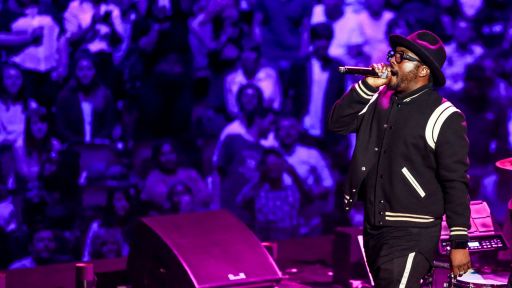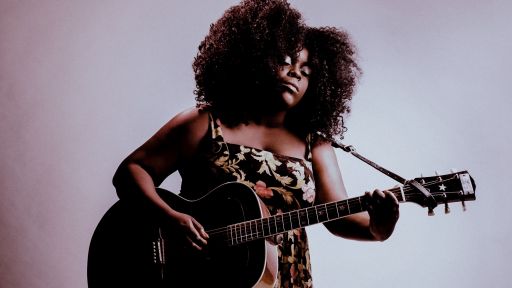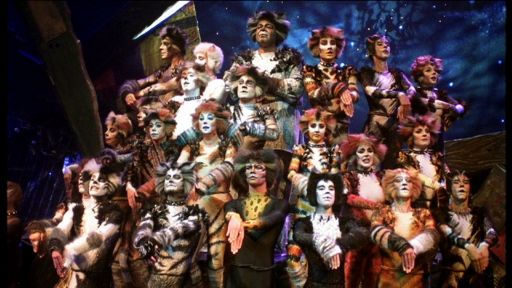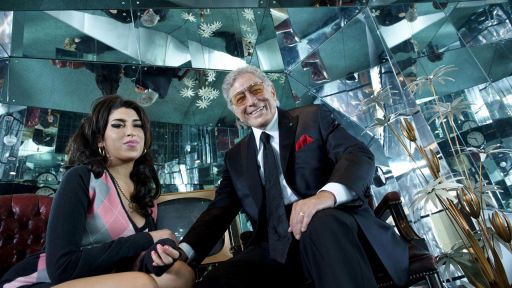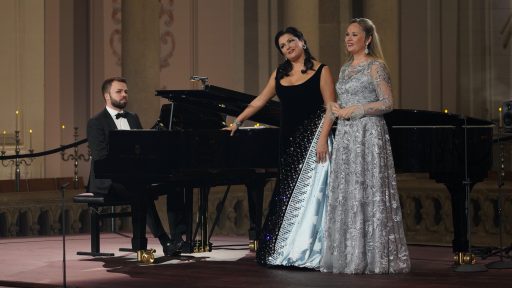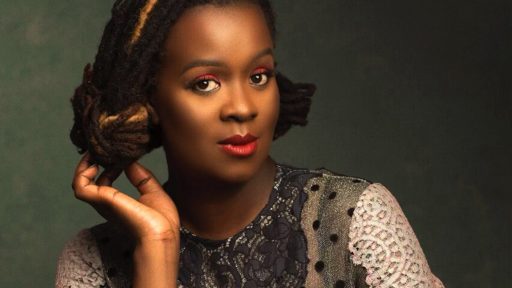Mary Rodgers, the daughter of Richard Rodgers, is an author and a composer in her own right; her Broadway credits include the 1959 musical “Once Upon a Mattress,” which launched the career of Carol Burnett. She spoke with GREAT PERFORMANCES Online about her father and his collaborations with Lorenz Hart for the broadcast of THE RODGERS AND HART STORY: THOU SWELL, THOU WITTY.
GREAT PERFORMANCES: Your father was always so dapper in his dress, and looked more like a successful banker than a major Broadway composer.
Mary Rodgers: I know. We made lots of jokes about that in the family, for he was a man who was very caring when it came to clothes. And although poor Oscar [Hammerstein II] was always concerned about his dress, no matter what he did, he looked as if he had just gotten out of bed!
GP: Mr. Rodgers always seemed so down-to-earth.
MR: He could be, and he was no slouch in the humor department.
GP: And he seemed to keep his great fame in perspective.
MR: That’s true. He was no prima donna. As a man he was very sensible, very aware of who he was. He, of course, went through all the anxieties every writer feels when he embarked on a new project. But he was also spoiled in ways that I think all men were back then. He expected my mother to be a good housekeeper and see that everything was properly taken care of. There were certain things he wanted nothing to do with when it came to the house.
GP: What do you feel was the special chemistry at work between him and Lorenz Hart?
MR: To start with, they were both so talented, and they had higher aspirations for musical theater than anyone before them, with the obvious exception of Gershwin’s “Porgy and Bess” and Jerome Kern’s “Show Boat.” Daddy used to say that with Larry Hart he had met the partner of his life and the most irritating man he had ever known. But then, talented people are often very difficult people.
GP: Did one spark the other more than the other way around, or was it fairly equal?
MR: One fed off the other’s ideas, and theirs was a mutual respect. Daddy was very good with languages and a very good lyric writer himself, and Larry was very musical. He couldn’t have written those genius rhythms of his if he had not understood music so well. Interestingly enough, in their work together, the music usually came first, where with Oscar and Daddy the lyrics came first.
GP: Could you compare the music your father wrote with Hart with what he wrote with Hammerstein?
MR: It is completely different. With Larry, Daddy’s music was quirkier and more mischievous. It was the music of his youth, less folksy and more sophisticated. Both of these qualities existed in my father. What Oscar did was to bring out the deep-seated, perfectly beautiful sounds of German Romanticism that were latent in Daddy’s writing. These enabled him to reach a new dimension in moments like the death scene in “Carousel” or the opening of “South Pacific,” when Nellie and Emile first meet. There had been no opportunity to write anything like that in a Rodgers and Hart musical. The subject matter wouldn’t have brought it out, and the art form hadn’t advanced to the point where you could present extended musical ideas.
GP: Did your father ever yearn, like George Gershwin, to write something substantial for the concert hall?
MR: Never! He was not remotely interested in abstract music. He needed the stimulus of a story and the stimulation of the theatrical experience. Then, too, although he wrote complete manuscripts and was a trained musician, he was not an orchestrator. And you don’t write a symphonic piece and let someone else orchestrate it.
GP: Why did Hart turned down “Oklahoma!”?
MR: It was just too folksy for him, and besides, he was coming to the end of his emotional tether. He was a prime candidate for Prozac, if it had only been available then. If he could have dealt with his emotional problems, God only knows what more he might have done.
GP: Was writing easy for your father?
MR: It was very easy. Noël Coward once said that Daddy just “pissed melody.” That doesn’t mean that a lot of thought didn’t go into his songs, however.
GP: Was your father close to his contemporaries, such as George Gershwin and Kurt Weill?
MR: I don’t believe he knew Weill or even particularly liked his music, but Gershwin was a close friend. If he was ever jealous of anyone — and I don’t mean “jealous” in any nasty or competitive way — it was Gershwin. But then everyone was. But Daddy was secure about his talent, and he knew that there was only one Richard Rodgers, like there was only one Frank Loesser, one Cole Porter. If you gave the same book and lyrics to three composers this good, they would have written three completely different shows.
GP: One last question: How would you compare the lyrics of Hart and Porter, which both have such a marvelous sense of word play?
MR: The difference, I think, came with what interested Porter as opposed to what interested Larry. I guess the lyrics for “The Lady Is a Tramp” could have been written by either one of them, but Porter, in general, never had the wistful, sentimental, slightly cynical quality you found so often in Larry’s lyrics. Porter was much more up front about joy, humor, wickedness. There was something that was more sly and complicated about Larry. They were both wicked — Porter could even be dirty — but they were wicked in very different ways.
Interview by the late John Ardoin for GREAT PERFORMANCES Online.


